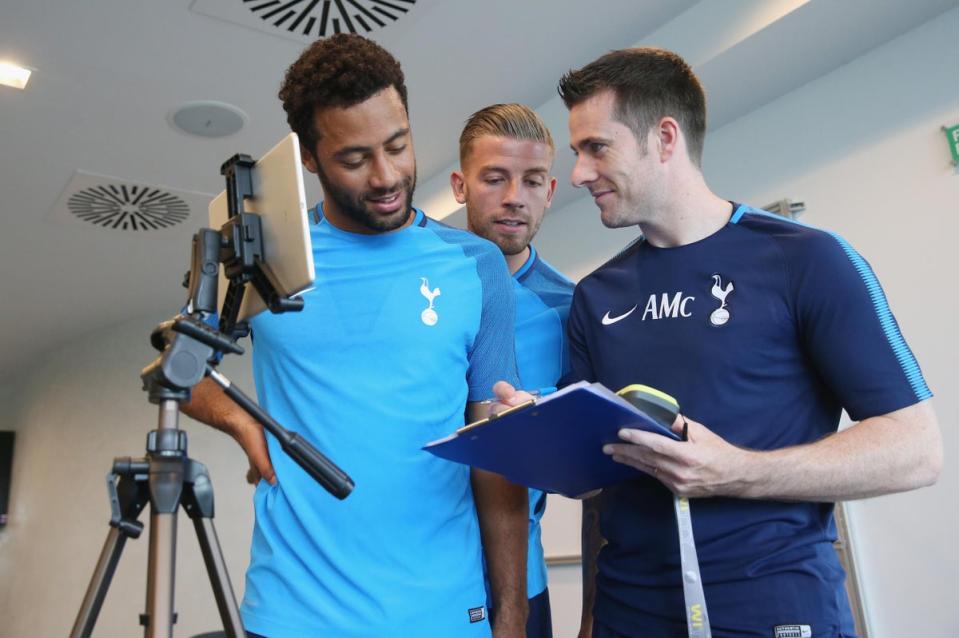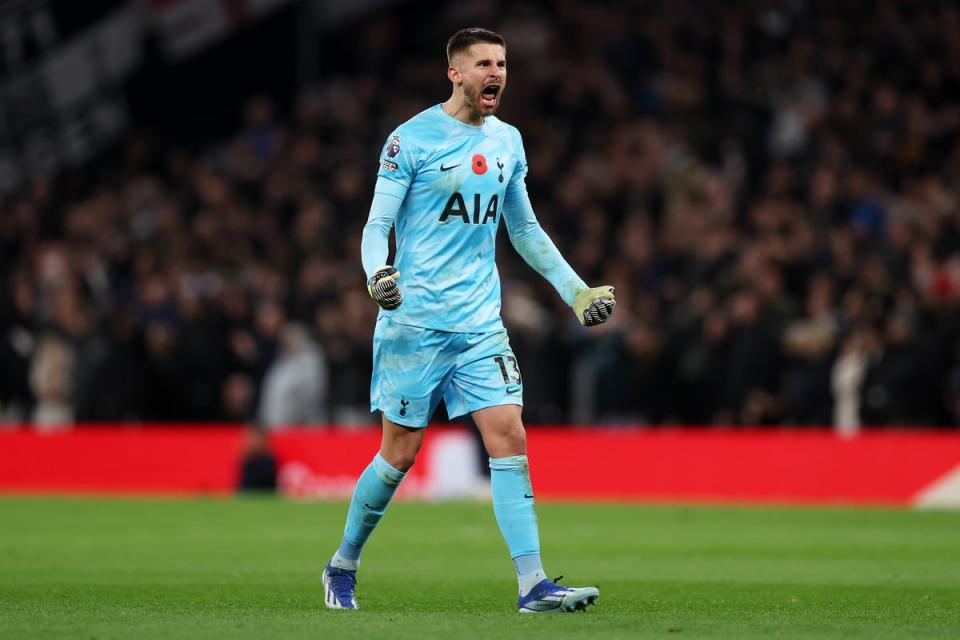How Tottenham are using data to outsmart their rivals in transfer market

Andre Villas-Boas last week revealed that Tottenham's use of data in recruitment led to "massive, massive arguments" when he was the club's head coach back in the summer of 2012.
As he told it, Villas-Boas had wanted Spurs to sign Joao Moutinho, but the Porto midfielder was way down the list of targets compiled by the club's data team — and some way behind Mousa Dembele, who came out on top statistically.
Spurs signed Dembele but did not move for Moutinho until it was too late, eventually missing out on his signature by a minute after time ran out on deadline day.
"It drained me emotionally to the point where, here was a guy that the data was not showing all that he represented from the coach's perspective. He was a player that knows your leadership, a player that knows your style, adaptability to your style," Villas-Boas said.

"We had massive, massive arguments in the beginning because of this with Moutinho. It was unfortunate, because we were going to build up a very strong midfield."
Villas-Boas relayed the anecdote to illustrate the challenges coaches may face as data and AI play an ever-increasing role in identifying transfer targets.
Spurs, plainly, have been using data to inform recruitment decisions for well over a decade, but today they are emerging as one of the smartest English clubs in the field — and Villas-Boas's latest successor is more relaxed and confident about the practice.
"It's hugely important," Ange Postecoglou said in September, when asked about the role of data in the transfer market. "The world is ever-changing, particularly in that space. I went through school with a paper and pen, so fair to say it's not my expertise.

"We employ a lot of people in that space... there pretty much isn't any hidden gems anywhere. Every club knows every player out there."
Postecoglou has good reason to be confident in Spurs's use of data. His first XI, which helped the club to their best start to a League season since 1960-61, is built around canny signings who appeared undervalued in the market but have adapted to English football with impressive speed.
Guglielmo Vicario (£17.2million), Micky van de Ven (£43m), Brennan Johnson (£47m), Pape Sarr (£14.6m) and Destiny Udogie (£15m) are among the players signed with the help of data and, after a series of mixed years in the market, Tottenham's recruitment has been hard to fault for the past three summers.
Spurs contract some of their data crunching to an external London-based company, which specialises in sports intelligence, but also have a number of specialists in-house, who compile targets based on specifications from the manager and pass recommendations on to the recruitment team.

Like most top clubs, Spurs now have a shortlist of 10 to 15 players for every position, all with impressive underlying performance data.
When the club finally picked a new technical director in Johan Lange (above), who began work on November 1, the Dane's track record at using data at Aston Villa and his other former clubs was one of the key reasons he was hired.
Lange has assumed a leading role in continuing to rebuild the squad in Postecoglou's image, with work well underway to identify January targets after the head coach called for Spurs to change tack by doing their business early in the winter window.
For Postecoglou, however, data is only one aspect — albeit a crucial one — of recruitment, and the Australian is just as focused on players' characters. "There's so much out there, it [data] is an ever-expanding space and all top clubs realise it's an important part of identification," Postecoglou said.
Data is an important part of recruitment, but there are bits that go beyond that, like a player's character
Ange Postecoglou
"But the most important bit is having a clear idea of what you're looking for. And for us that means I need to see them in our team, playing our football.
"There's so many fantastic footballers and sometimes there is so little between choosing between them. Sometimes it comes down to their fit in terms of the way we want to play, sometimes it's down to what kind of person they are, so that final bit goes beyond the data."
Postecoglou vetted all of Spurs's summer signings to ensure they were a good fit personality-wise for his project, and the 58-year-old has insisted he will have the "final say" on all additions, suggesting "massive arguments" are less likely now than in Villas-Boas's day.
For Spurs, as much as any leading club, the smart use of data and a synergy between the manager and recruitment team is crucial to their hopes of success.
Under their current ownership model, Spurs are never going to outspend their 'big-six' rivals in the transfer market, but while they cannot be the most extravagant club in the Premier League, they can be one of the smartest.

 Yahoo Sport
Yahoo Sport 





































